With new technologies revolutionizing data collection, wildlife researchers are becoming increasingly able to collect data at much higher volumes than ever before. Now we are facing the challenges of putting this information to use, bringing the science of big data into the conservation arena. With the help of machine learning tools, this area holds immense potential for conservation practices. The applications range from online trafficking alerts to species-specific early warning systems to efficient movement and biodiversity monitoring and beyond.
However, the process of building effective machine learning tools depends upon large amounts of standardized training data, and conservationists currently lack an established system for standardization. How to best develop such a system and incentivize data sharing are questions at the forefront of this work. There are currently multiple AI-based conservation initiatives, including Wildlife Insights and WildBook, that are pioneering applications on this front.
This group is the perfect place to ask all your AI-related questions, no matter your skill level or previous familiarity! You'll find resources, meet other members with similar questions and experts who can answer them, and engage in exciting collaborative opportunities together.
Just getting started with AI in conservation? Check out our introduction tutorial, How Do I Train My First Machine Learning Model? with Daniel Situnayake, and our Virtual Meetup on Big Data. If you're coming from the more technical side of AI/ML, Sara Beery runs an AI for Conservation slack channel that might be of interest. Message her for an invite.
Header Image: Dr Claire Burke / @CBurkeSci

Explore the Basics: AI
Understanding the possibilities for incorporating new technology into your work can feel overwhelming. With so many tools available, so many resources to keep up with, and so many innovative projects happening around the world and in our community, it's easy to lose sight of how and why these new technologies matter, and how they can be practically applied to your projects.
Machine learning has huge potential in conservation tech, and its applications are growing every day! But the tradeoff of that potential is a big learning curve - or so it seems to those starting out with this powerful tool!
To help you explore the potential of AI (and prepare for some of our upcoming AI-themed events!), we've compiled simple, key resources, conversations, and videos to highlight the possibilities:
Three Resources for Beginners:
- Everything I know about Machine Learning and Camera Traps, Dan Morris | Resource library, camera traps, machine learning
- Using Computer Vision to Protect Endangered Species, Kasim Rafiq | Machine learning, data analysis, big cats
- Resource: WildID | WildID
Three Forum Threads for Beginners:
- I made an open-source tool to help you sort camera trap images | Petar Gyurov, Camera Traps
- Batch / Automated Cloud Processing | Chris Nicolas, Acoustic Monitoring
- Looking for help with camera trapping for Jaguars: Software for species ID and database building | Carmina Gutierrez, AI for Conservation
Three Tutorials for Beginners:
- How do I get started using machine learning for my camera traps? | Sara Beery, Tech Tutors
- How do I train my first machine learning model? | Daniel Situnayake, Tech Tutors
- Big Data in Conservation | Dave Thau, Dan Morris, Sarah Davidson, Virtual Meetups
Want to know more about AI, or have your specific machine learning questions answered by experts in the WILDLABS community? Make sure you join the conversation in our AI for Conservation group!
- 0 Resources
- 0 Discussions
- 8 Groups
Electronics Engineer working in the development of smart conservation technology solutions.
- 0 Resources
- 0 Discussions
- 1 Groups
PhD student using Geo-AI and remote sensing to address environmental problems
- 0 Resources
- 0 Discussions
- 2 Groups
Founder of Wildya & Wild Business Mates / With Wildya - I combine nature & personal development / With Wild Business Mates - I help biodiversity heroes like you to get better at business

- 3 Resources
- 3 Discussions
- 2 Groups
- @eliminatha
- | she
Passionate wildlife researcher dedicated to uncovering the secrets of the natural world via the lens of camera traps. With a sharp eye for detail and a strong commitment to wildlife conservation.
- 0 Resources
- 0 Discussions
- 4 Groups
- @Amitkaushik
- | he/him/his
University of Georgia (UGA)
Environmental anthropologist; An interdisciplinary Ph.D. student, bridging conservation science, policies, and social justice
- 0 Resources
- 1 Discussions
- 2 Groups
Data has been my passion and i enjoy working with data while bringing value to the business. Data engineer with 7+ years of experience Eager to support with expert analytical skills to advance the companys business operations and strategic initiative.
- 0 Resources
- 0 Discussions
- 9 Groups
- @kbubnicki
- | he/his
Ecologist, data scientist, and programmer with over 13 years of professional experience. Open source and Linux enthusiast. Researcher at the Mammal Research Institute, Polish Academy of Sciences, and CEO of the Open Science Conservation Fund.
- 0 Resources
- 0 Discussions
- 5 Groups
Fauna & Flora
Remote Sensing Scientist
- 2 Resources
- 1 Discussions
- 6 Groups
- @JoãoVieira
- | he/him
Conservation biologist. Iberian wolf monitoring field technician. Master`s on bear`s movement ecology.
- 0 Resources
- 0 Discussions
- 2 Groups
- @shannondubay
- | she/her
Panthera
Director of Conservation Technology at Panthera
- 0 Resources
- 0 Discussions
- 5 Groups
- @waltertortuga
- | She/Her/Hers
Universidad San Francisco de Quito
I'm a professor and researcher focusing on carnivore conservation in tropical landscapes.
- 0 Resources
- 0 Discussions
- 5 Groups
April 2024
event
event
October 2024
April 2023
February 2023
Transparency, AI, and Machine Learning Conservation Impacts
3 February 2021 10:12pm
13 February 2021 12:14am
Thanks Carly,
These are great ideas. The movebank recommendation reminds me of some work from Save the Elephants that used its transparency to exonerate an elephant that had been accused of eating up some crops. I didn't know about Hack the Poacher - I'll check that out. I'm familiar with the others, but will dig deeper to understand the transparency angle. I work on Wildlife Insights, so know that one well. TEAM has essentially morphed into Wildlife Insights as I understand things.
Thanks again!
Best,
Thau
Windows explorer video thumbnails
26 September 2019 9:31am
12 February 2021 7:10pm
This works very well, and can remove the movie strip icons from the edges of the thumbnails, which obscure animals just coming into the frame. https://icaros.en.softonic.com/
Intro to Embedded Machine Learning on Coursera
 Edge Impulse
Edge Impulse
9 February 2021 12:00am
Tech Tutors: How do How do I launch machine learning projects using MLOps?
3 February 2021 12:08pm
5 February 2021 7:16pm
Dan's comments about the need for technologists and conservationists to manage and share (properly annotated) data struck a chord with me, it was right at the end of the presentation.
I fired off a point into the chat "could your old background data be my background data?" or something similar, and it got me thinking...
(Firstly, sorry for clouding this issue with my simultaneous "Ian Tuna" joke)
In the context of using AI as described in EdgeImpulse example, lets say - audio.
Lets say Group A are trying to detect the roar of lions, and Group B are trying to detect the grunt of wild pigs, and lets imagine that is in roughly the same area of Africa. I mean they could both send out teams to capture the sound of their target animal, and the sound of NOT their target animal, e.g everything else.
Well if "serengetti sounds" was a known audio track, then all you need is the unique sound of the beast in question, am I right?
Seeking interviewees - AI in Conservation & nonprofits
9 December 2020 6:20am
16 January 2021 7:13am
Hi @Alex.L , I would suggest the same as for @mattzig at https://www.wildlabs.net/community/thread/1046#post-4348 :
I could try to connect you with some of the people and orgs we have worked with. If you go through https://www.vizzuality.com/project/ and identify the projects you would like to be look into, I can then try to connect you with the best person for each project.
And I would be very interested in learning more about your research group's work, besides your current research question, if possible!
Happy New Year! Luisa
28 January 2021 6:40am
HI Luisa,
Thank you so much for your help! I will definitely take a look at your organisation project list. I will be messaging you directly shortly. I would be glad to discuss my research group if it interest you.
Best,
Alex
4 February 2021 3:48pm
Hi Alex, that sounds great! Feel free to email me at [email protected], that may be simpler.
Tech Tutors: How do I start a Tech4Wildlife collaboration?
28 January 2021 12:55pm
28 January 2021 6:22pm
One barrier that was discussed in the presentation was the "risk" or uncertainty of a payoff when talking to potential funders. It seems to me that the "risk" factor of collaborations like this, for funders, would be analogous to the investment and payoff when developing a genomics program. Relative to traditional field research, it takes a much greater investment in time, with different expertise, to create a reference genome for a species of interest and then pull SNPs, etc. Nevertheless, funders seem to recognize the potential for genomic research and genomic tools. Do you think that greater openness to “risk” in conservation genomics results from closer intellectual proximity (i.e., molecular biology vs organismal biology), or to conservation genomics being a more mature field (i.e., more examples of success), or to other factors? If intellectual proximity is a key factor, then conservation tech collaborations will continue to face this barrier, but if lack of successful examples are a key factor, then perhaps this barrier will become less of an issue for conservation tech in the future. Thoughts?
30 January 2021 2:26am
Hi. Just watched the Youtube version (I'm in the unable to watch live hemisphere) and wanted to say that was a great talk. I wish it could have gone for another hour. I liked hearing about the issues and concerns from Melanie on the biology/ecology side. Also could totally relate to what Ed was talking about from the tech side about how it's difficult to have long term collaborations since there isn't really a conservation technology career path at the moment.
I think one of the things we're trying to do with courses like Build Your Own Datalogger is to get people involved in wildlife/conservation side more comfortable with the tech. The goal is to hopefully build a shared repository of technical knowledge that people in the wildlife community can contribute to and benefit from.
Akiba
Protecting Wildlife with Machine Learning
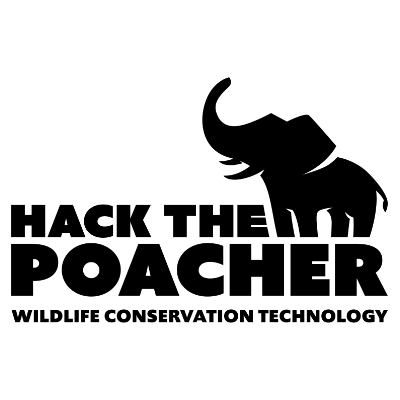 Hack the Poacher
Hack the Poacher
29 January 2021 12:00am
How do I launch machine learning projects using MLOps?
25 January 2021 12:00am
How do I start a Tech4Wildlife collaboration?
18 January 2021 12:00am
Edge Impulse Becomes the First AI Company to Join 1% for the Planet
 Edge Impulse
Edge Impulse
15 January 2021 12:00am
X-Prize for Rainforests
26 November 2019 9:19am
23 June 2020 7:06pm
I think if you added it to your calendar through the registration button on the Rainforest XPrize site, it added the link to join to your calendar.
30 June 2020 5:45pm
Hi everyone!
I only just came across this thread and the Rainforest XPrize. I would love to be a part of the team if it's not too late. I filled out the Google Sheet form with my experience, but I also wanted to post a note in the form. I have experience managing conservation tech projects (with some members of this forum!), testing tech in the field, and conducting biodiversity surveys in the Amazon. I read through the Google Docs notes from previous meetings and you all have some interesting ideas. I would love the be a part of future planning meetings if you'll have me!
11 January 2021 7:06pm
I know I'm very late, but I only discovered this recently. Is your team still active/accepting new members?
Tech Tutors: How do I use pattern matching analysis to label acoustic data with RFCxArbimon?
17 December 2020 3:31pm
17 December 2020 9:22pm
Thanks everybody for joining today's session! I've attached the article here that describes Pattern Matching in greater detail to respond to some of the questions from today's session.
Also, here is a link to our Privacy Policy and our Terms of Service for the individual who had questions about GDPR. Feel free to contact us at [email protected] with any other questions about the platform or Pattern Matching in general!
23 December 2020 3:21am
Zephyr and Marconi, thanks for the great talk and your hard work that made this platform available to the public!! I'm experimenting with the pattern matching function to create some training data but have issues trying to get the "Jobs'' to run. I only have 18 files for each of these tests, but only 1 processed to 11.1% while two others stay at 0%. The internet connection was briefly interrupted when I created the first job and was fine later on. I can only Hide, not delete or re-run these jobs, so I'm not sure what to do. Any suggestions would be greatly appreciated. Thanks so much!
23 December 2020 3:27pm
Hi @pmnguyen1224 , thanks for reaching out and checking out the system! We would love to help ensure that you're able to get pattern matching to work for you! I do have a few questions for you so we can replicate issue you are experiencing. Would you mind emailing us a couple screenshots and your original message above at [email protected] to get started? Or feel free to send us a chat if that's easier, by clicking on the chat icon on https://arbimon.rfcx.org/. Looking forward to supporting you moving forward!
British Antarctic Survey: Monitoring Whales From Space
 British Antarctic Survey
British Antarctic Survey
21 December 2020 12:00am
Realtime video analysis using ML on Raspberry PI
25 September 2020 3:15pm
11 December 2020 12:19pm
Hi Andrew,
Yo need to train a lightweight DNN model for bird flocks which can then be deployed on Raspberry Pi. For initial starters, you can look into the below tutorial:
https://www.pyimagesearch.com/2017/10/16/raspberry-pi-deep-learning-object-detection-with-opencv/
Best
Piyush
How do I use pattern matching analysis to label acoustic data with RFCx Arbimon?
8 December 2020 12:00am
FIS Call for Expressions of Interest (closed)
 Fisheries Innovation Scotland
Fisheries Innovation Scotland
8 December 2020 12:00am
Making the Most of Tech Tutors Season 2!
30 November 2020 12:00am
Kaggle Competition: Species Audio Detection
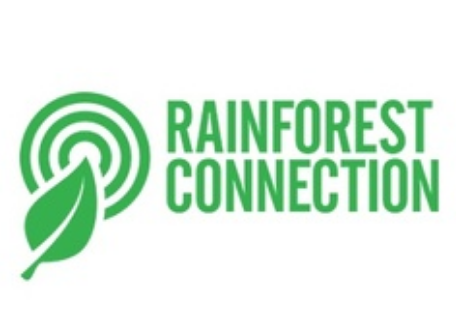 Rainforest Connection
Rainforest Connection
24 November 2020 12:00am
WILDLABS Tech Tutors: Season Two
24 November 2020 12:00am
WILDLABS: Building a Better World with ‘Bad’ Data
17 November 2020 12:00am
Weekly Event: OTN Virtual Study Hall
 Ocean Tracking Network
Ocean Tracking Network
16 November 2020 12:00am
Google unveils search engine for open data
6 September 2018 4:26pm
10 September 2018 7:57am
I agree – this is a very welcome development, and it’s early days; I’m sure it will improve rapidly though. Whilst recognising that there are lots(!) of excellent data repositories out there already, with necessarily specialist functionality, there’s long been a need for something that can overarch these effectively, a ‘discovery portal of discovery portals’. Hopefully this can help do that.
After a cursory look, a couple of things struck me, from a user perspective: 1 –definitely some odd/limited search results at the moment, but as noted it’s early days – it’ll snowball as data owners get on board and standards adjust accordingly. 2 – more search tools would be beneficial e.g. date range tools, a map/bounding box search tool (cf Microsoft’s FetchClimate tool).
I also wanted to understand a bit more behind how it’s working – I assumed markup but wondered what ‘semantic web’ stuff this is drawing on. This article gives a bit more info, but I wonder how different it is to other efforts in this regard, e.g. how ARIES team have been developing semantic based tools to find best available datasets for ecosystem service modelling.
Final thought – it raises interesting questions and challenges about how to ensure things like quality and suitability are going to be measured objectively. It seems like this is an issue to be tackled as the tool develops and data owners engage more as it grows…
20 May 2020 10:24am
Hi all,
I'm fairly new to conservation technology and just getting acquainted with the extent and problems in the field. Data aggregation, standardisation and storage keep popping up as chronic problems across a lot of areas. Data seems to exist in sort of silos with different filing and access arrangements between them.
I would be interested to hear: Has the google dataset search improved drastically since its inception? Are there alternative solutions out there, or are there efforts to create them?
For example, from the bioacoustics meetup the other day, the vast datasets from the Australian Acoustic Observatory and Cornell Bioacoustics Centre don't seem to show up on google dataset search.
Andy the ARIES team you mentioned released a preview video of the interface with their ecosystem services modelling software. It seems really cool, is this something that would be useful for researchers outside of strict ecosystem services e.g. distributions of particular species temporally and spatially? What do you think of their software?
I'm not certain I'm asking the right questions here, but I'd be curious to hear your thoughts on any of this if you have any time.
15 November 2020 1:04am
This is great, thanks for sharing.
Using Computer Vision to Protect Endangered Species
 Kasim Rafiq
Kasim Rafiq
10 November 2020 12:00am
Hackathon Opportunity: Vaquita Hacks
 The Conservation Project International
The Conservation Project International
10 November 2020 12:00am
Upcoming AI for Conservation Events and Webinars
29 October 2020 10:57am
29 October 2020 11:02am
AI for Climate Forum: Lightning Talks
Bonnie Lei, Microsoft AI for Earth - 4pm GMT, October 30
Register here: https://us02web.zoom.us/webinar/register/WN_wO6ek5dTSMOmYqeMCDbkoQ
As part of the AI for Climate Forum 2020, we will host a series of Lighting Talks with industry leaders, academic representatives and researchers, NGO leaders, and policymakers; that will share ideas about the future of conservation and the harnessing of exponential technologies in the fight against climate change.
Next Guests:
October 30: Bonnie Lei, Head of Global Strategic Partnerships at AI for Earth/ Microsoft
November 6: Jenny Lawton, Startup Founder, and Innovation Expert
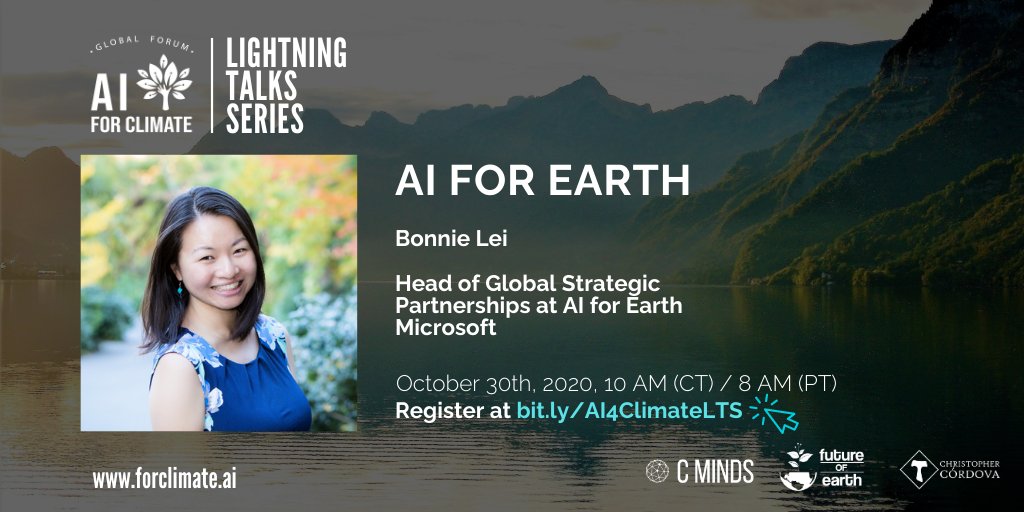
Tech Tutors: How do I train my first machine learning model?
18 June 2020 1:19pm
8 October 2020 9:45pm
Hi Wildlabbers,
Just popping in to share this very cool primer for beginners to embedded machine learning from our tutor Daniel Situnayake! If you're interested in learning more about the basics of TinyML, this is a great resource.
-Ellie
Training Opportunity: HarvardX TinyML Course
 edX
edX
30 September 2020 12:00am
Webinar: Advances in Fisheries Electronic Monitoring
 SAFET
SAFET
21 September 2020 12:00am
Tech Tutors: Review Session
3 September 2020 12:00am
Sustainable Fishing Challenges: Fishing Gear Innovations
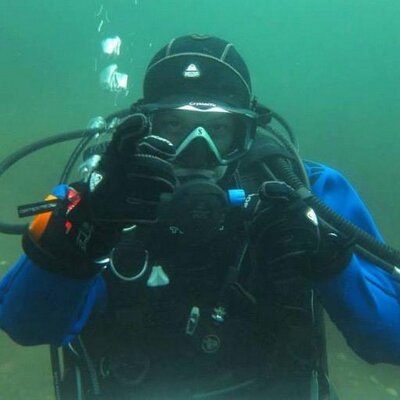 Daniel Steadman
Daniel Steadman
19 August 2020 12:00am








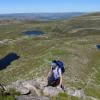





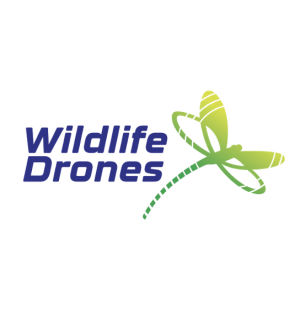





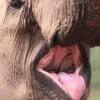







5 February 2021 2:21pm
Hello,
Just spit-balling some ideas, but you might check out WildMe/WildBook, Widlife Insights, the ICARUS/Movebank project, Arbimon, Norway's new imaging initiative (https://www.planet.com/nicfi/), Hack the Poacher, Vulcan's EarthRanger, SmartParks, the SMART app/platform, the TEAM camera trap network?
Not sure if any of this is what you're looking for but just some things that came to mind!